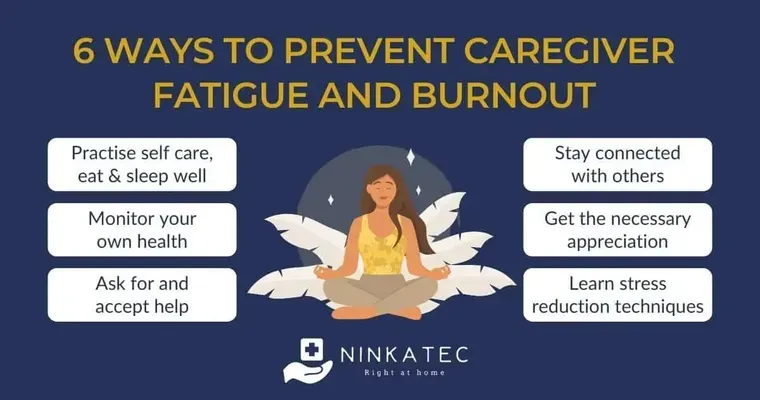Being a "caregiver" is a noble and fulfilling role, but it can also lead to significant "burnout" if not properly managed. Many caregivers often feel overwhelmed and may refuse to seek help, believing they must handle everything on their own. If you know a caregiver who is struggling, here are some effective strategies to help them address their "burnout" without pushing them to seek professional assistance they might resist.
First and foremost, it is essential to approach the situation with empathy and understanding. Let the caregiver know that their feelings are valid and that it is normal to feel overwhelmed. Sometimes simply acknowledging their struggles can provide them with a sense of relief and lessen the burden they carry.
Encouraging "self-care" is another vital step. Caregivers often neglect their own needs while focusing on those they care for. Gently suggest activities that promote relaxation and well-being, such as taking a walk, practicing mindfulness, or engaging in a hobby. You might even consider joining them in these activities, making it a shared experience that they can look forward to.
Offering practical support can also make a significant difference. This could include volunteering to help with chores, running errands, or simply spending time with the person they care for, allowing the caregiver a much-needed break. When caregivers see that they have a support system, they may feel more inclined to accept help and acknowledge their own needs.
Sometimes, caregivers may feel isolated or alone in their struggles. Encouraging them to connect with other caregivers can be beneficial. This can be facilitated through support groups, online communities, or even informal meet-ups. Sharing experiences with others who understand the challenges of caregiving can help reduce feelings of isolation and provide valuable coping strategies.
Offering resources without being pushy is another effective approach. Compile information about local support services, respite care options, or counseling services. Presenting these resources in a non-threatening manner can help the caregiver feel more comfortable exploring their options without feeling pressured.
Lastly, keep the lines of communication open. Regular check-ins can make the caregiver feel valued and supported. Listen actively to their concerns without judgment, and be there to provide encouragement. Sometimes, just knowing that someone cares can motivate them to take the first steps toward seeking help.
In conclusion, helping a caregiver who refuses to seek help for burnout requires patience, empathy, and practical support. By promoting self-care, offering assistance, facilitating connections with others, and maintaining open communication, you can make a significant impact on their well-being. Remember that your support can empower them to recognize their needs and ultimately lead them towards a healthier and more balanced life.





